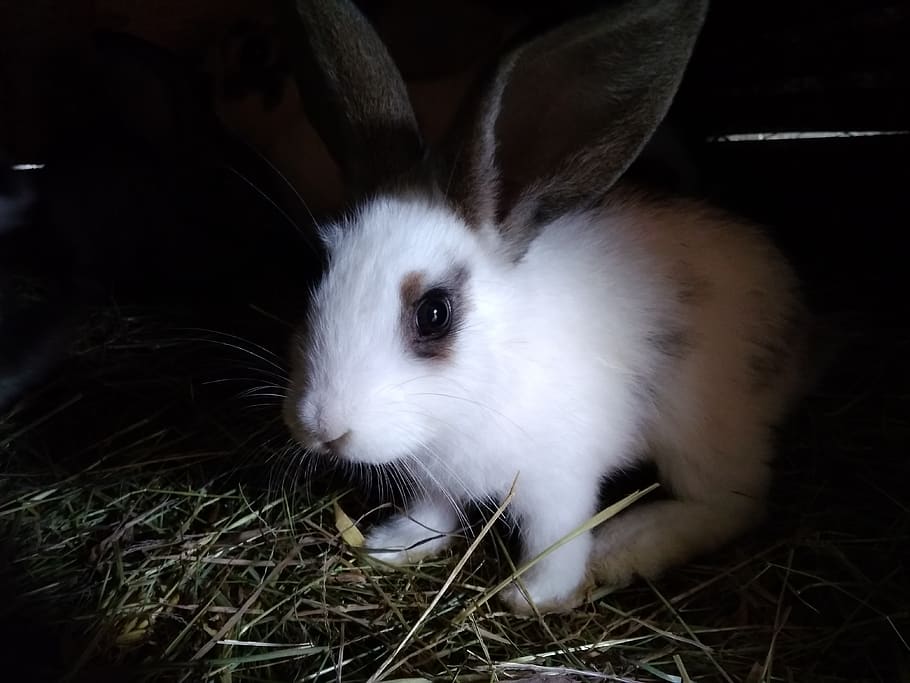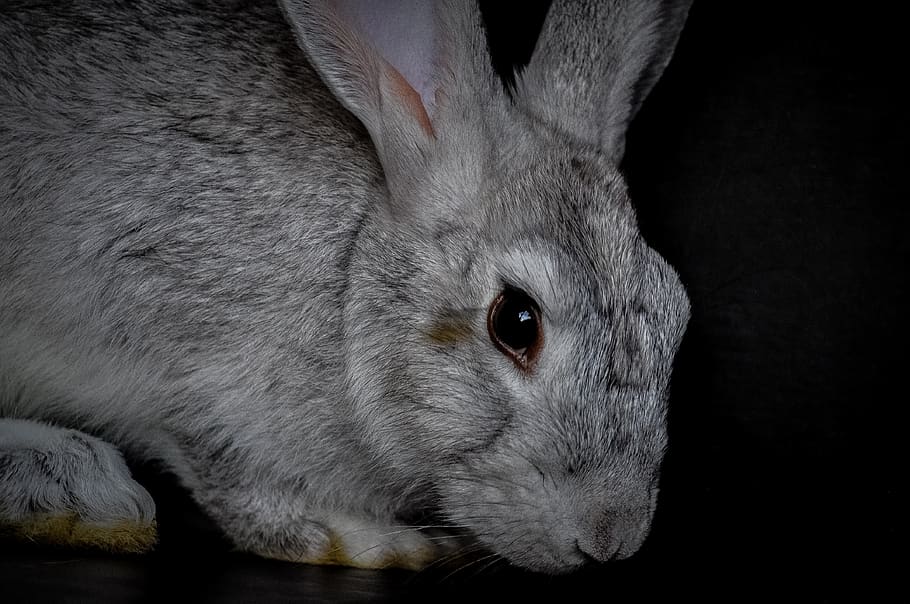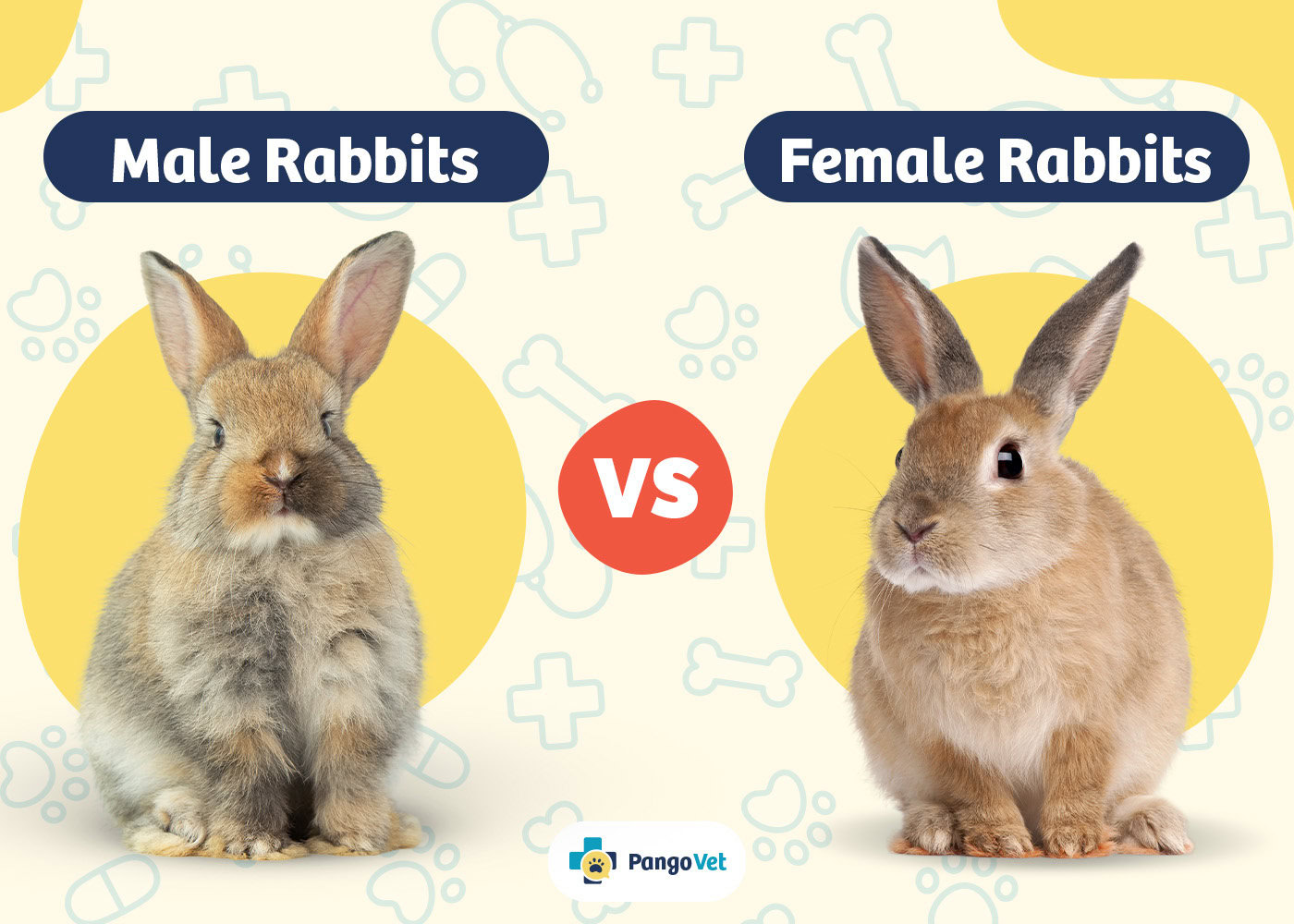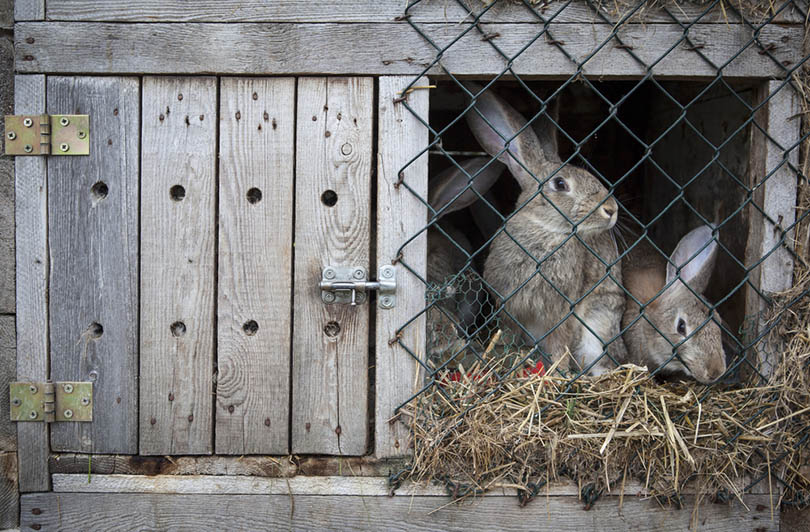VET APPROVED

The information is current and up-to-date in accordance with the latest veterinarian research.
Learn more »Click to Skip Ahead
A rabbit’s sense of vision is just one of many traits that make it well-adapted to surviving in the wild. If you own a rabbit, you may know that they are most active at dawn and dusk but tend to sleep their days away and will gladly wake you up early in the morning!
What does this mean for their vision, though? In this article, we’ll be exploring the question of whether rabbits can see in the dark, from low-light conditions to complete darkness, and explain whether rabbits are nocturnal. Along the way, you’ll learn more about how your rabbit’s eyes work, as well as tips for how to best care for their eyesight in your home.

In Short: Yes, Rabbits Can See in the Dark!
It’s true! Rabbits can see in the dark, but not in complete darkness. Because they are crepuscular – meaning that they are most awake and alert at dawn and dusk – rabbits have evolved to see very well in low-light conditions. This helps them to forage for fresh grasses and weeds, even while the sun is barely up.

Can Rabbits See in Complete Darkness?
No, not exactly. While rabbits possess excellent vision in dim light, they cannot see in complete darkness. Their eyes, particularly the rod cells, require some ambient light to function. In the absence of any light, such as in a completely dark room, their vision is ineffective. Although they may rely on memory, whiskers, and smell for navigation in such situations, they are essentially blind.
How Do a Rabbit’s Eyes Work?
It’s easy to see that a rabbit’s eyes are positioned laterally – that is, on the sides of their heads. This gives them a nearly 360-degree field of vision, with only a small blind spot right in the center of their vision where their eyesight doesn’t overlap. This wide field of vision helps to identify any potential dangers in their environment, so they can take action to stay safe.
Rabbits can see a few colors, but not the same spectrum as humans. Mostly, their vision is limited to hues of green, blue, and yellow.
Amazingly, a rabbit’s eyes are more acute than those of primates, including humans. They can see farther into the distance and detect movement more quickly. Their eyes are more sensitive to light than humans’, rabbits are easily able to see with even just a small light source.
Rabbits have special visual adaptations that help them see well in low light. Their retinas contain many rod cells, which are sensitive to light and movement. These cells work well in dim light but do not detect color. Rabbits also have large eyes and wide pupils, allowing more light to enter and improving their ability to see in the dark. Although they do not have a tapetum lucidum, the reflective layer found in some animals like cats, their eye structure and high number of rod cells make up for it. This allows rabbits to see clearly in low light without the glowing eyes seen in other species.

When Are Rabbits Most Active?
Rabbits are most active at dawn and dusk. This pattern of activity helps to protect them from predators, as most predators are either diurnal (more active during the day) or nocturnal (more active at night). By choosing twilight hours, rabbits reduce the risk of being seen and caught. Rabbits take advantage of this time to safely travel and gather food.
Are Rabbits Nocturnal?
Since rabbits are most active at dawn and dusk, you might be wondering if they are awake and active through the night, or, in other words, wondering if rabbits are nocturnal. You might be surprised to find out that no, they are not. They are actually categorized as crepuscular, which means they’re most active at – you guessed it – dawn and dusk.
Rabbits find the daylight to be too dangerous when it comes to predators. And although they’ve got excellent low-light vision, the deep of the night is also too dangerous for rabbits, so they tend to spend most of their time just before the sun rises and sets again.
Should You Leave a Light on for Your Rabbit at Night?
No, you do not need to leave a light on for your rabbit at night.
As crepuscular animals, they are most active at dawn and dusk and possess excellent low-light vision, allowing them to navigate comfortably in the dark. Artificial light exposure at night can disrupt their natural sleep cycle, potentially causing stress and health issues. Their strong spatial memory further aids their movement in dim conditions. Providing a quiet, dark, and safe resting space is ideal for your rabbit overnight.


Conclusion
Rabbits are fascinating creatures, and the way they see the world is uniquely suited to their lives. According to our sources, they can readily see in low-light settings, though complete darkness is more difficult for them to navigate. Either way, their vision helps them to stay safe in the wild and avoid accidents at home.
Related Rabbit Reads:
- Why Does My Rabbit Shake? 11 Reasons & What to Do
- Can Rabbits Swim? Is It Safe, and Do They Like It?
- What to Do If A Rabbit Bites You
Featured Image Credit: Pxfuel










